
Kurdish is a language or a group of languages spoken by Kurds in the geo-cultural region of Kurdistan and the Kurdish diaspora. Kurdish constitutes a dialect continuum, belonging to Western Iranian languages in the Indo-European language family. The main three dialects or languages of Kurdish are Northern Kurdish, Central Kurdish, and Southern Kurdish.

Gorani also known by its main dialect; Hawrami is a language spoken by ethnic Kurds in northeastern Iraq and eastern Iran and which with Zaza constitute the Zaza–Gorani languages. Gorani is a Kurdish dialect. But since the 20th century, some orientalists who are not linguist, neither have any language about the Kurdish or any other languages in the region consider it a 'northwest Iranian' language, which is separate from the Kurdish language. Gorani is literary language for Kurds, and the speakers of Gorani call their language Kurdish.

Turtles Can Fly is a 2004 Kurdish war drama film written, produced, and directed by Bahman Ghobadi. The film stars Soran Ebrahim, Avaz Latif, Saddam Hossein Faysal, Hiresh Feysal Rahman, Abdolrahman Karim, Ajil Zibari. The plot is about three refugee children, on the border of Iraq-Turkey, awaiting for the Americans to invade Iraq and the fall of Saddam Hussein.

Mah Sharaf Khanom Mastoureh Ardalan or Mastura Ardalan was a Kurdish poet, historian, and writer.

Kurdish culture is a group of distinctive cultural traits practiced by Kurdish people. The Kurdish culture is a legacy from ancient peoples who shaped modern Kurds and their society.
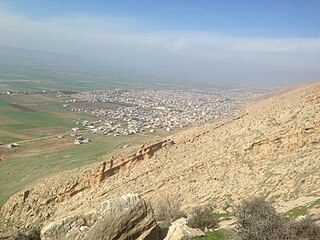
Harir is a town and sub-district in Erbil Governorate in Kurdistan Region, Iraq. The town is located in the Shaqlawa District.

Soran Emirate was a medieval Kurdish emirate established before the conquest of Kurdistan by Ottoman Empire in 1514 and later revived by Emir Kor centered in Rawandiz from 1816 to 1836. Kor was ousted in an offensive by the Ottomans.

The 1991 Iraqi uprisings were ethnic and religious uprisings against Saddam Hussein in Iraq which were led by Shi'ites and Kurds. The uprisings lasted from March to April 1991 after a ceasefire following the end of the Gulf War. The mostly uncoordinated insurgency was fueled by the perception that Iraqi President Saddam Hussein had become vulnerable to regime change. This perception of weakness was largely the result of the outcome of the Iran–Iraq War and the Gulf War, both of which occurred within a single decade and devastated the population and economy of Iraq.

Soran or Diyana is a city in Erbil Governorate, and the capital of Soran District in Kurdistan Region, Iraq. Soran is one of the largest cities in Kurdistan Region with a population of about 125,000 people.
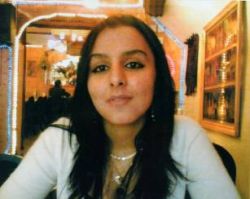
Banaz Mahmod was a 20-year-old Iraqi Kurdish woman who lived in Mitcham, South London, England. She was murdered on the orders of her family in a so-called honour killing because she ended a violent and abusive forced marriage and started a relationship with someone of her own choosing. Her father, uncle and three cousins were later convicted of her murder.

Yazidis or Yezidis are a Kurdish-speaking endogamous group who are indigenous to Kurdistan, a geographical region in Western Asia that includes parts of Iraq, Syria, Turkey and Iran. The majority of Yazidis remaining in the Middle East today live in Iraq, primarily in the governorates of Nineveh and Duhok.

Erbil, also called Hawler, is the capital and most populated city in the Kurdistan Region of Iraq. It lies in the Erbil Governorate. It has an estimated population of around 1,600,000.
Sidekan also called Bradost, is a vast subdistrict belonging to Soran District (Diana-Rawanduz) north of Erbil in Kurdistan Region, with 250 villages, and a population of less than 15,000. The exact number of Bradostian people estimated is more than this census but as the original inhabitants had been deported three times in 1961, 1978, and 1988 and a lot of them have not yet returned due to the frequent bombing by the Turkish and Iranian militaries on the Kurdistan Workers Party strongholds in Khakurk mountains, and also because of the lack of renovation projects by the local authorities.

Lady Adela Jaff or Adela Khanem, called the Princess of the Brave by the British was a Kurdish ruler of the Jaff tribe and one of the first famous woman leaders in the history of Kurdistan. The Jaff tribe is the biggest tribe in Kurdistan and is native to the Zagros area, which is divided between Iran and Iraq. Adela Khanem was of the famous aristocratic Sahibqeran family, who intermarried with the tribal chiefs of Jaff. Lady Adela exerted great influence in the affairs of Jaff tribe in the Sharazor plain.
Between 1 and 15 August 2014, the Islamic State of Iraq and the Levant (ISIL) expanded territory in northern Iraq under their control. In the region north and west from Mosul, the Islamic State conquered Zumar, Sinjar, Wana, Mosul Dam, Qaraqosh, Tel Keppe, Batnaya and Kocho, and in the region south and east of Mosul the towns Bakhdida, Karamlish, Bartella and Makhmour

Feylis, also known as Feyli Kurds, is a Kurdish tribe mainly from Baghdad and the borderlands between Iraq and Iran.They speak Feyli which is classified as a sub-dialect of Southern Kurdish, but is commonly mistaken as being identical with the separate Feyli dialect of Northern Luri. Linguist Ismaïl Kamandâr Fattah argues that the Kurdish Feyli dialect and other Southern Kurdish sub-dialects are 'interrelated and largely mutually intelligible.'
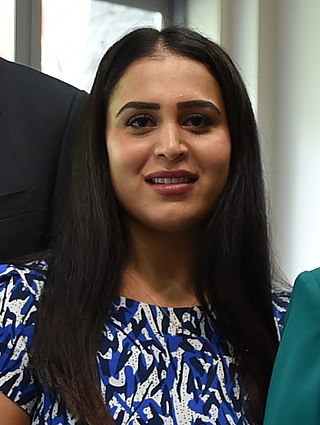
Rez Gardi is a Kurdish New Zealander international lawyer and human rights activist. She was awarded the Young New Zealander of the Year for 2017 for her services to human rights.
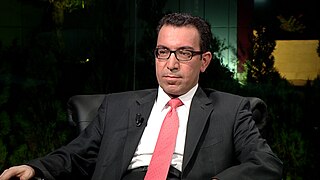
Noreldin Waisy,, is an Kurdish political analyst and journalist. He helped found the Kurdish media broadcasting outlets Rudaw and Kurdistan 24. He served as the general manager of Kurdistan 24, based in the Kurdistan's capital Erbil, from 2015 to 2019. Waisy currently serves as the press secretary to Kurdistan Regional Government (KRG) Prime Minister Masrour Barzani.

Hemin Hawrami, ,, is a Kurdish politician, writer and academic. He has been the Deputy Speaker of the Iraqi Kurdistan Parliament since February 2019. He is a senior member of the Kurdistan Democratic Party. He was elected as a Member of the Kurdistan Parliament in September 2018. He was the head of the Kurdistan Democratic Party's foreign relations (2011–2017) and later a senior adviser to President Masoud Barzani (2017–2019) for political and international affairs. He holds a PhD in international relations and he has written eight books in Kurdish on Kurdish politics.
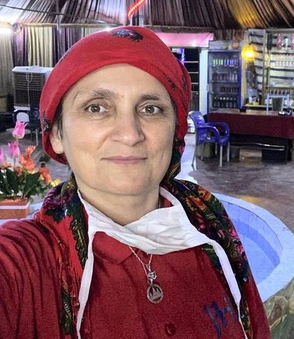
Nemam Ghafouri was an Iraqi-born Swedish Kurdish medical doctor and practitioner. She was known for helping Yazidi victims of Islamic State of Iraq and the Levant (ISIL).


















